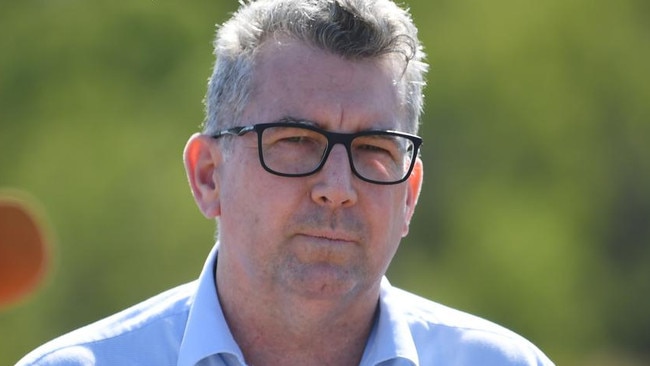Nationals lead fight on $2.4bn PRRT hike bid
Nationals MPs are urging the Coalition to vote against Labor’s changes to the PRRT – a move that would force the government into negotiations with the Greens.

Nationals MPs are calling for the Coalition to oppose Labor’s legislation to toughen the petroleum resources rent tax, which is aimed at raising an extra $2.4bn over four years, an outcome that would force the government into negotiations with the Greens.
While the opposition has not yet taken a formal decision on Labor’s PRRT shake-up, which is supported by the industry, former resources minister Keith Pitt told The Australian: “We should say no. We don’t want to be within a million miles of policies that put at risk multibillion-dollar projects in offshore oil and gas.
“If you combine Labor’s proposal for the safeguard mechanism with proposed changes to taxation, it will put at risk these big projects that employ potentially thousands of Australians and contribute strongly to the national economy.”
NSW Nationals MP David Gillespie also warned the PRRT shake-up could be the “straw that breaks the camel’s back”.
“It would make developing petroleum gas in Australia untenable if they keep going like this,” Mr Gillespie said. “I’ve got to see the quantum and the details. But being a predictable and reliable government is important for businesses that put upwards of $50bn in investment into these massive energy projects.”
Labor faces major obstacles to its legislative agenda in the Senate, with the Greens saying they will only support the government’s PRRT shake-up if the revenue from the measure is doubled.
The minor party wants to move amendments that would toughen the tax so it raises an extra $5.6bn from LNG producers over the decade, and leader Adam Bandt has pledged to fight Labor more on economic issues.
Peter Dutton has previously said the opposition will demand Anthony Albanese reduce red tape and approval timelines for gas projects in exchange for the Coalition’s support for the $2.4bn tax impost on the industry.
Australian Petroleum Production & Exploration Association chief executive Samantha McCulloch also said the proposed PRRT changes provided “greater certainty for industry” but would need Coalition support.
“Bipartisan support is important because Australia needs a strong and sustainable future for the gas industry and that requires stable and enduring policy settings,” she said.
The appeal from Mr Pitt and Mr Gillespie to reject the PRRT changes is stronger than the position taken by Nationals leader David Littleproud, who told The Australian the party would take a “pragmatic” view on the legislation. “Definitely we’ll be looking at how this can work constructively,” Mr Littleproud said.
“And that’s about feedback from industry and understanding that we don’t undermine future investment confidence.”
Matt Canavan, another former resources minister, said he was happy to consider Labor’s legislation but it needed to be “part of a bigger package of reducing red tape”. “Raising taxes right now is not the priority,” he said. “There is a massive shortfall of capital investment coming to Australia given the high prices we’ve seen for oil and gas.
“Tax reform is important but I just think it seems to be an all-stick-and-no-carrot approach for the resources sector at the moment. There’s issues with the PRRT that could clearly be cleaned up. But if all we do is use the resources sector as a cash cow, then the golden goose will stop laying eggs.”
Labor faces the prospect of a series of Senate fights with the Greens on other issues including Mr Albanese’s proposed $2.3bn tax hike on superannuation balances for wealthy retirees.
Mr Albanese’s $10bn housing affordability package – a potential double-dissolution election trigger – also remains stalled in the upper house, with the Greens withholding support unless national cabinet agrees to a two-year freeze on rental increases.
The Australian understands the government’s draft PRRT legislation was discussed by the Nationals on Monday, although some Liberal MPs are also concerned about supporting the government’s proposal.



To join the conversation, please log in. Don't have an account? Register
Join the conversation, you are commenting as Logout